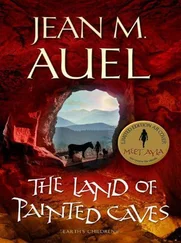John Browne - The Land of Thor
Здесь есть возможность читать онлайн «John Browne - The Land of Thor» — ознакомительный отрывок электронной книги совершенно бесплатно, а после прочтения отрывка купить полную версию. В некоторых случаях можно слушать аудио, скачать через торрент в формате fb2 и присутствует краткое содержание. Жанр: foreign_antique, foreign_prose, Путешествия и география, на английском языке. Описание произведения, (предисловие) а так же отзывы посетителей доступны на портале библиотеки ЛибКат.
- Название:The Land of Thor
- Автор:
- Жанр:
- Год:неизвестен
- ISBN:нет данных
- Рейтинг книги:4 / 5. Голосов: 1
-
Избранное:Добавить в избранное
- Отзывы:
-
Ваша оценка:
- 80
- 1
- 2
- 3
- 4
- 5
The Land of Thor: краткое содержание, описание и аннотация
Предлагаем к чтению аннотацию, описание, краткое содержание или предисловие (зависит от того, что написал сам автор книги «The Land of Thor»). Если вы не нашли необходимую информацию о книге — напишите в комментариях, мы постараемся отыскать её.
The Land of Thor — читать онлайн ознакомительный отрывок
Ниже представлен текст книги, разбитый по страницам. Система сохранения места последней прочитанной страницы, позволяет с удобством читать онлайн бесплатно книгу «The Land of Thor», без необходимости каждый раз заново искать на чём Вы остановились. Поставьте закладку, и сможете в любой момент перейти на страницу, на которой закончили чтение.
Интервал:
Закладка:
With the exception of the seventy-five versts between Moscow and Tver, I can not remember that I ever traveled over so desolate and uninteresting a stretch of country as that lying between St. Petersburg and Moscow. For a short distance out of St. Petersburg there are some few villas and farms to relieve the monotony of the gloomy pine forests; then the country opens out into immense undulating plains, marshy meadows, scrubby groves of young pine, without any apparent limit; here and there a bleak and solitary village of log huts; a herd of cattle in the meadows; a wretched, sterile-looking farm, with plowed fields, at remote intervals, and so on hour after hour, the scene offering but little variety the whole way to Tver. The villages are wholly destitute of picturesque effect. Such rude and miserable hovels as they are composed of could scarcely be found in the wildest frontier region of the United States. These cabins or hovels are built of logs, and are very low and small, generally consisting of only one or two rooms. I saw none that were whitewashed or painted, and nothing like order or regularity was perceptible about them, all seeming to be huddled together as if they happened there by accident, and were obliged to keep at close quarters in order to avoid freezing during the terrible winters. Some of them are not unlike the city of Eden in Martin Chuzzlewit. The entire absence of every thing approaching taste, comfort, or rural beauty in the appearance of these villages; the weird and desolate aspect of the boggy and grass-grown streets; the utter want of interest in progress or improvement on the part of the peasantry who inhabit them, are well calculated to produce a melancholy impression of the condition of these poor people. How can it be otherwise, held in bondage as they have been for centuries, subject to be taxed at the discretion of their owners; the results of their labors wrested from them; no advance made by the most enterprising and intelligent of them without in some way subjecting them to new burdens? Whatever may be the result of the movement now made for their emancipation, it certainly can not be more depressing than the existing system of serfage. Looking back over the scenes of village life I had witnessed in France and Germany – the neat vine-covered cottages, the little flower-gardens, the orchards and green lanes, the festive days, when the air resounded to the merry voices of laughing damsels and village beaux —
“The hawthorn bush, with seats beneath the shade,
For talking age and whispering lovers made” —
the joyous dancers out on the village green, the flaunting banners and wreaths of flowers hung in rich profusion over the cross-roads – with such scenes as these flitting through my memory, I could well understand that there is an absolute physical servitude to which men can be reduced, that, in the progress of generations, must crush down the human soul, and make life indeed a dreary struggle. In the splendor of large cities, amid the glitter and magnificence of palaces and churches, the varied paraphernalia of aristocracy and wealth, and all the excitements, allurements, and novelties apparent to the superficial eye, the real condition of the masses is not perceptible. They must be seen in the country – in their far-off villages and homes throughout the broad land; there you find no disguise to cover the horrible deformities of their bruised and crushed life; there you see the full measure of their civilization. In the huts of these poor people there is little or no comfort. Many of them have neither beds nor chairs, and the occupants spend a sort of camp life within doors, cooking their food like Indians, and huddling round the earthen stove or fireplace in winter, where they lie down on the bare ground and sleep in a mass, like a nest of animals, to keep each other warm. Their clothing is of the coarsest material, but reasonably good, and well suited to the climate. The men are a much finer-looking race, physically, than their masters. I saw some serfs in Moscow who, in stature, strong athletic forms, and bold and manly features, would compare favorably with the best specimens of men in any country. It was almost incredible that such noble-looking fellows, with their blue, piercing eyes and manly air, should be reduced to such a state of abject servitude as to kiss the tails of their master’s coats! Many of them had features as bold and forms as brawny as our own California miners; and more than once, when I saw them lounging about in their big boots, with their easy, reckless air, and looked at their weather-beaten faces and vigorous, sunburnt beards, I could almost imagine that they were genuine Californians. But here the resemblance ceased. No sooner did an officer of high standing pass, than they manifested some abject sign of their degraded condition.
Some of the agricultural implements that one sees in this country would astonish a Californian. The plows are patterned very much after those that were used by Boaz and other large farmers in the days of the Patriarchs; the scythes are the exact originals of the old pictures in which Death is represented as mowing down mankind; the hoes, rakes, and shovels would be an ornament to any museum, but are entirely indescribable; and as for the wagons and harnesses – herein lies the superior genius of the Russians over all the races of earth, ancient or modern, for never were such wagons and such harnesses seen on any other part of the globe. To be accurate and methodical, each wagon has four wheels, and each wheel is roughly put together of rough wood, and then roughly bound up in an iron band about four inches wide, and thick in proportion. Logs of wood, skillfully hewed with broad-axes, answer for the axle-tree; and as they don’t weigh over half a ton each, they are sometimes braced in the middle to keep them from breaking. Upon the top of this is a big basket, about the shape of a bath-tub, in which the load is carried. Sometimes the body is made of planks tied together with bullock’s hide, or no body at all is used, as convenience may require. The wagon being thus completed, braced and thorough-braced with old ropes, iron bands, and leather straps, we come to the horses, which stand generally in front. The middle horse is favored with a pair of shafts of enormous durability and strength. He stands between these shafts, and is fastened in them by means of ropes; but, to prevent him from jumping out overhead, a wooden arch is out over him, which is the chef-d’œuvre of ornamentation. This is called the duga , and is the most prominent object to be seen about every wagon, drosky, and kibitka in Russia. I am not sure but a species of veneration is attached to it. Often it is highly decorated with gilding, painted figures, and every vagary of artistic genius, and must cost nearly as much as the entire wagon. Some of the dugas even carry saintly images upon them, so that the devout driver may perform his devotions as he drives through life. To suppose that a horse could pull a wagon in Russia without this wooden arch, the utility of which no human eye but that of a Russian can see, is to suppose an impossibility. Now, the shafts being spread out so as to give the horse plenty of room at each side, it becomes necessary, since they are rather loosely hung on at the but-ends, to keep them from swaying. How do you think this is done? Nothing easier. By running a rope from the end of each shaft to the projecting end of the fore axle, outside of the wheels. For this purpose the axle is made to project a foot beyond the wheels, and the only trouble about it is that two wagons on a narrow road often find it difficult to pass. It is very curious to see these primitive-looking objects lumbering about through the streets of Moscow and St. Petersburg. The horses are most commonly placed three abreast. In the ordinary kibitka or traveling wagon the outside horses are merely fastened by ropes, and strike out in any direction they please, the whip and a small rein serving to keep them within bounds. It is perfectly astonishing with what reckless and headlong speed these animals dash over the rough pavements. Just imagine the luxury of a warm day’s journey in such a vehicle, which has neither springs nor backed seats – three fiery horses fastened to it, and each pulling, plunging, and pirouetting on his own account; a ferocious yamtschick cracking his whip and shrieking “Shivar! shivar!” – faster! faster! – the wagon, rattling all over, plunging into ruts, jumping over stones, ripping its way through bogs and mud-banks; your bones shaken nearly out of their sockets; your vertebræ partially dislocated; your mouth filled with dust; your tongue swollen and parched; your eyes blinded with grit; your yamtschick reeling drunk with vodka , and bound to draw to the destined station – or some worse place; your confidence in men and horses shaken with your bones; your views of the future circumscribed by every turn of the road – oh! it is charming; it is the very climax of human enjoyment. Wouldn’t you like to travel in Russia?
Читать дальшеИнтервал:
Закладка:
Похожие книги на «The Land of Thor»
Представляем Вашему вниманию похожие книги на «The Land of Thor» списком для выбора. Мы отобрали схожую по названию и смыслу литературу в надежде предоставить читателям больше вариантов отыскать новые, интересные, ещё непрочитанные произведения.
Обсуждение, отзывы о книге «The Land of Thor» и просто собственные мнения читателей. Оставьте ваши комментарии, напишите, что Вы думаете о произведении, его смысле или главных героях. Укажите что конкретно понравилось, а что нет, и почему Вы так считаете.











